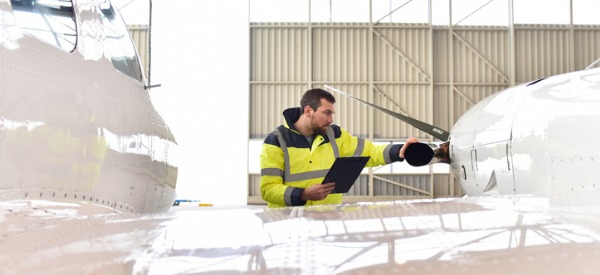What is a Flight Engineer?
A valued crew member of any airplane, a flight engineer is responsible for ensuring that all components of the plane are in proper working order. It is their duty to make any of the repairs if a mechanical issue does arise. Flight engineers are also used to interpret complicated flight-related gauges and instruments, and to help pilots with navigation. Unfortunately, several of these duties have been diminished due to the emergence of automated computer programs, capable of performing several of the same duties at a much lower cost.
Regardless, flight engineers are still widely used by the military and by companies with larger aircraft. This is because military aircraft use the most recent technology, operate under different systems than commercial airlines, and are at higher risk of attack or mechanical problems. Certain countries also have laws requiring all three and four engine airplanes to carry a licensed flight engineer.
What does a Flight Engineer do?

Flight engineers have an extensive list of roles both on and off the ground. Before takeoff begins, they must inspect the aircraft and ensure that it is safe for use. They often have a pre-flight checklist that has to be completed before a plane is cleared to fly. These include checks for any fluid leaks or improperly inflated tires.
Once the plane is airborne, the flight engineer constantly monitors all of the computer systems and checks for any abnormalities. They are experts on all of the plane's mechanical instruments including the fuel gauges, pressure indicators, wing flaps and even the landing gear. The pilot can confer with the flight engineer if they have any questions or concerns about a specific instrument and its operation. They also take a look at the weather patterns and determine the proper amount of fuel required for the flight. They control the air conditioning, cabin airflow, the main electrical system and the engine power. Flight engineers are constantly collaborating with the pilot, determining if any specific adjustments need to be addressed. Many flight engineers have their pilot's license and could potentially fly the aircraft if absolutely necessary.
Following the flight, they do a thorough inspection of the plane and ensure that all components are functioning properly. They must also submit a completed flight log of the trip. If a problem did occur during the flight, it is their duty to file a proper report and to contact the mechanics for repairs.
What is the workplace of a Flight Engineer like?
Flight engineers spend the majority of their time on the airplane itself. As a result, working hours are often unpredictable due to constant flight delays and changes in schedules. They often have to work on late night flights and travel across the country or the world. This means that there can be little time spent at home. When not in the air, most of their time is still spent at the airport alongside the aircraft. This is a definite advantage for those who dislike a traditional office job.
Flight Engineers are also known as:
Air Engineer
Air Mechanic